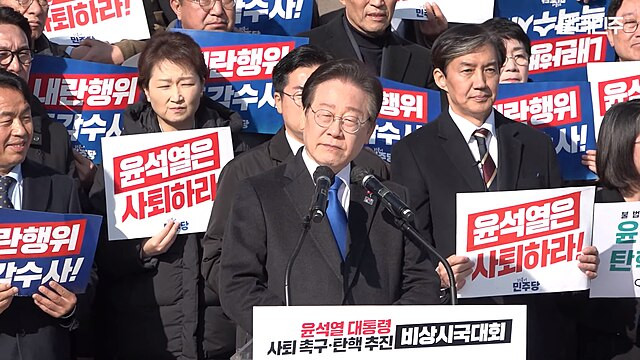Lee Jae-myung of the Democratic Party has been declared the winner of South Korea's snap presidential election, securing the presidency after former leader Yoon Suk Yeol's martial law declaration plunged the nation into political turmoil. With more than 99% of the vote counted early Wednesday, Lee held a lead of over two million ballots, prompting his conservative rival, Kim Moon-soo, to concede.
"I will do my utmost to fulfil the great responsibility and mission entrusted to me, so as not to disappoint the expectations of our people," Lee said to reporters outside his residence, stopping short of an outright declaration of victory but widely signaling the result.
Kim, addressing supporters, said he "humbly accept[s] the people's decision," as South Korea's election commission reported turnout nearing 80%-the highest since 1997. The vote follows Yoon's December 3 declaration of martial law, which was overturned within hours after lawmakers breached military barricades and voted to revoke the decree. Yoon was impeached in April, leaving a vacuum filled by interim leaders and national unrest.
"This will be kind of a return to normal politics," said Celeste Arrington, a Korea Foundation associate professor at George Washington University, noting that Lee's party already controls the unicameral legislature, potentially smoothing legislative efforts. Park Chan-dae, acting leader of the Democratic Party, said exit poll results showed "people's fiery judgement against the insurrection regime."
Lee, 61, a former human rights lawyer and ex-governor of Gyeonggi Province, has a long history in public life. He narrowly lost to Yoon in 2022 and survived a January 2024 assassination attempt when he was stabbed in the neck at a public event. On the night of the martial law decree, Lee was among the lawmakers who livestreamed their entry into the National Assembly to vote down the measure.
A polarizing figure, Lee faces multiple criminal trials, including bribery charges and a property development scandal. Courts delayed proceedings during the campaign, but they are expected to resume. Lee has denied all allegations, stating in December, he had been indicted on various charges "without any evidence or basis."
During the campaign, Lee pledged sweeping political and economic reforms. He has proposed revising the constitution to allow two four-year presidential terms and increasing oversight of martial law declarations. He emphasized expanding the AI sector, easing income inequality, and supporting small businesses. His platform also includes denuclearization talks with North Korea and a human rights-centered approach to inter-Korean relations.
Internationally, Lee is expected to recalibrate Seoul's foreign policy. His adviser Wi Sunglac said the alliance with Washington will remain the "cornerstone" of South Korea's diplomacy. However, Lee also aims to maintain strategic dialogue with China and Russia.
U.S. relations were strained during the crisis, and Lee's administration inherits a tense economic climate shaped by President Donald Trump's tariffs, including a 25% levy on key South Korean exports. Negotiations with Washington are ongoing, with Lee expected to prioritize stabilizing trade ties amid threats of additional duties on semiconductors and pharmaceuticals.
Lee is set to take office immediately, without the usual two-month transition, marking a rare moment in South Korea's postwar history.






